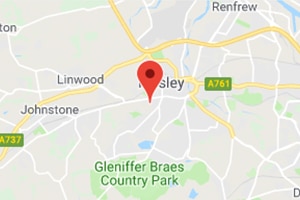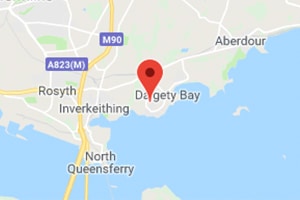You might not think that Goldilocks has anything to do with your boiler but you’d be wrong.
Just like the little girl from the fairy-tale who tests the bears porridge and beds, your boiler needs to be maintained properly and kept at the correct pressure not too high, not too low, but just right in order to ensure it remains in good working order.
But what do you do when your boiler starts playing up? Why does it happen? And most importantly, how can it be fixed?
It is always a good idea to call in a professional to diagnose and sort out any issues, but with a little boiler-based know-how there are several problems that you can identify and a few that you can fix by yourself.
WHY IS PRESSURE IMPORTANT?
In the same way that the human body needs to regulate blood pressure to keep the body healthy and operating at an optimum level, the water pressure in your boiler needs to be kept at a safe and constant level. For the boiler to be able to send water throughout your building, the pressure needs to be kept at the required level.
If it is too low, then the boiler will not be able to pump water into your bath, your sinks or your shower (just imagine. . .). Alternatively, if it is too high, then the system the pipes and other components are under too much strain and might eventually crack or burst, which is, again, a situation best avoided for obvious reasons.
Therefore, keeping your boiler pressure at a safe level is crucial.
REPAIR OR REPLACE?
One of the first questions you will need to ask is whether you need to throw out your current boiler and get a new one or consider having it repaired. Again, it is a fine line, so you need to check your system carefully in order to ascertain what the specific problem is and then decide on the appropriate action.
If you are experiencing ongoing issues with the pressure of your boiler (such as regular drops or sudden spikes in pressure), it might be time to replace it. There are also some greener alternatives to conventional boilers.
BETTER SAFE THAN SORRY
To keep your boiler within the recommended pressure ranges, you need to understand what the various numerical levels, readouts and gauges mean.
The ideal boiler pressure the zone that is just right is 1 1.5 bar. If the boiler pressure gauge reading is creeping up to the 4 or 5 mark, then you have a pressure problem. In this case, it is most likely that your system has already switched itself off to avoid a more serious issue.
That said, it is not uncommon to find your combi boiler showing readings of anything between the 1 3 bar mark, when in full operation, as it is busy heating considerable amounts of water, an activity which is simply reflected in the higher reading.
Conversely, if you are seeing a pressure reading of 1 or below, you have a different kind of problem, as the system will most likely have lost pressure completely.
Lastly, when you’re heating up your system and you get an increase in pressure of more than 1 bar, you may need to repressurise your expansion vessel.
Essentially, if you see any irregular readings especially those that indicate a particularly high pressure or those that continue inexplicably for any length of time it is important to call out a qualified heating engineer to take a look right away, as you might need to pay for a boiler service.
It is also possible that if your unit is over ten years old, it is due for replacement anyway. You might grumble at the cost of repairing or replacing your boiler, but you will grumble considerably more if you have to pay the expenses for a boiler that has caused significant damage to a room of a building, due to the fact that it was left unserviced for too long.
It is better to be safe than sorry.
TOP 5 COMMON FAULTS & RECOMMENDED FIXES
Problem Number 1: WATER WASTE
One of the most common issues is an overloaded system. It is natural to want to ensure that your system is fully topped up after a bout of low pressure, but it is important to understand that if you put too much water into the system, it will actually be counter-productive.
In order to identify the problem, have a look at your pressure gauge when your boiler is OFF. The reading should not be above 1.5 bar; if it is, then you have an issue with high pressure.
The Fix:
The fix for this one is pretty simple: Get rid of some of the water from the system by draining it or bleeding your radiator. And don’t worry, your boiler won’t feel a thing. . .
Problem Number 2: PIPES & TAPS
There is no bigger potential problem than having a malfunctioned or broken part, as it has the potential to stop the entire system from working at all, or at least significantly reduce the overall effectiveness of your boiler.
There are several likely suspects, including the diverter valve, the pressure relief valve or any other number of pipes. Pipes are one of the most common sources of fault as they have a tendency to drip if not taken care of properly. One of the most common culprits is the filling loop. Filling loops are flexible pipe that hides under your boiler, connected to a tap/taps.
The fix:
To fix this issue, simply check whether or not the taps have been closed tightly enough. It sounds too obvious, and it is, but it is the leading reason why the taps are dripping in the first place. If the taps are secure and well-tightened, then it is time to call in a gas safe engineer to take a closer look.
Problem Number 3: PILOT LIGHT PROBLEMS
This is an easy one. If your pilot light keeps going out, it is probably due to a malfunctioned or damaged thermocouple.
The fix:
Contact a professional to come and service the unit; it is unlikely that you will be able to attend to the issue yourself.
Problem 4: RADIATORS REFUSING TO HEAT
This is a common problem, especially in new houses. There may be various reasons for a radiator not working but there is one obvious one.
If you have switched on the central heating but can feel that radiators are still cold, then it is worth placing one hand on top of the radiator and one on the bottom to see whether the temperatures are the same.
More likely than not, the top is cold but the bottom is significantly warmer. In this case, your radiator might have filled with air, which means it cannot fill itself up with hot water and provide the heating you need.
The fix:
The good news is that there is an easy DIY fix: Bleed your radiator. This will release any trapped air and allow the water to fill the system as normal.
Problem 5: THERMOSTAT ISSUES
Thermostats are likely to need replacing every few years. Therefore, if you are experiencing issues with your heating and hot water supply, it is worth checking to see whether the thermostat has a fault and needs to be fixed or replaced.
The fix:
This problem sometimes requires a qualified technician to do the job, but it is possible to do so yourself. As ever, we would recommend that you contact a professional.
THE BOTTOM LINE
. . . is: take care of your boiler!
Make sure that you check it regularly, and get it serviced immediately if there are any obvious issues or any strange readings but remember: Minor issues with pressure readings are not necessarily a big deal. It is also a good idea to consider whether or not to turn your boiler off when you go on holiday.
Although a high-pressure boiler is rarely dangerous, as modern boilers are fitted with a Pressure Release Value (PRV), the cost of getting it repaired or replaced is likely to be less than the amount you would have to pay for a boiler that malfunctions and causes damage to a property.
Even if the damage is not extensive and expensive, the stress and inconvenience especially in the winter months that not having a working boiler causes (I’m sure you can imagine) is simply not worth it.
So, now you know how to treat your heating system properly and ensure it stays within the Goldilocks Zone, your days of dealing with disruptions, leaks, malfunctions and mysterious readings are over.
Just like every good fairy-tale, this one, too, has a happy ending.
Remember, boiler repairs should be carried our by a qualified gas safe engineer.
Skills Training Group is an award-winning provider of gas apprenticeship, plumbing, electrical & first aid courses. For further information on our range courses, contact a member of our team on 0141 889 4516.

